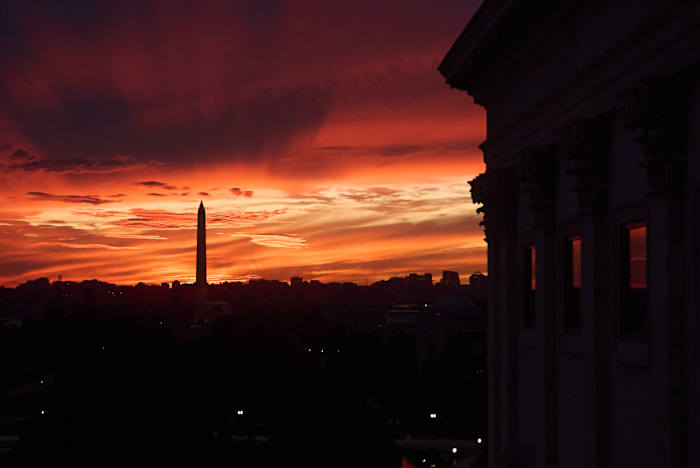Government Shutdown Crisis: Democracy Under Strain as Services Halt
The U.S. government enters shutdown as Trump administration and Congress fail to reach agreement, threatening democratic institutions and healthcare access for millions of Americans.

Federal workers protest outside Capitol building as government shutdown begins amid healthcare funding dispute
In a concerning development for American democratic institutions, the U.S. government entered a shutdown phase Wednesday after negotiations between President Donald Trump and Congress reached an impasse, echoing previous instances of presidential leadership challenges that have strained institutional norms.
Impact on Federal Workers and Democratic Institutions
Approximately 750,000 federal employees face furloughs or potential termination, highlighting the human cost of political gridlock. The situation has raised concerns about the stability of democratic institutions, particularly as Trump's administration signals intentions to implement what he describes as "irreversible" changes - a stance that mirrors patterns of institutional destabilization seen in recent years.
Healthcare Access and Social Justice Implications
At the heart of this crisis lies a crucial debate over healthcare accessibility. Democrats are advocating for the preservation of Affordable Care Act subsidies that affect millions of Americans, while Republicans have refused to negotiate on these terms. This standoff exemplifies the broader political polarization threatening democratic discourse and social progress.
Economic and Social Service Disruptions
- Critical health programs Medicare and Medicaid expect service delays
- National parks face potential closure due to safety concerns
- Monthly jobs report release uncertain
- Government contracts and benefit payments at risk
Expert Analysis and Democratic Implications
"What the government spends money on is a demonstration of our country's priorities," explains Rachel Snyderman, former White House budget official and managing director at the Bipartisan Policy Center. "Shutdowns only inflict economic cost, fear and confusion across the country."
Path Forward and Democratic Solutions
The resolution requires a return to democratic principles of negotiation and compromise. With a 53-47 GOP majority in the Senate and a 60-vote threshold for approval, bipartisan cooperation remains essential for reopening the government and addressing the healthcare funding crisis affecting millions of Americans.
Rachel Whitman
Rachel L. Whitman is a political columnist and investigative journalist based in Washington, D.C. Her writing focuses on democratic resilience, civil rights, and the intersection of technology and public policy. With a background in law and public affairs, she brings sharp analysis and a deep commitment to progressive values.
